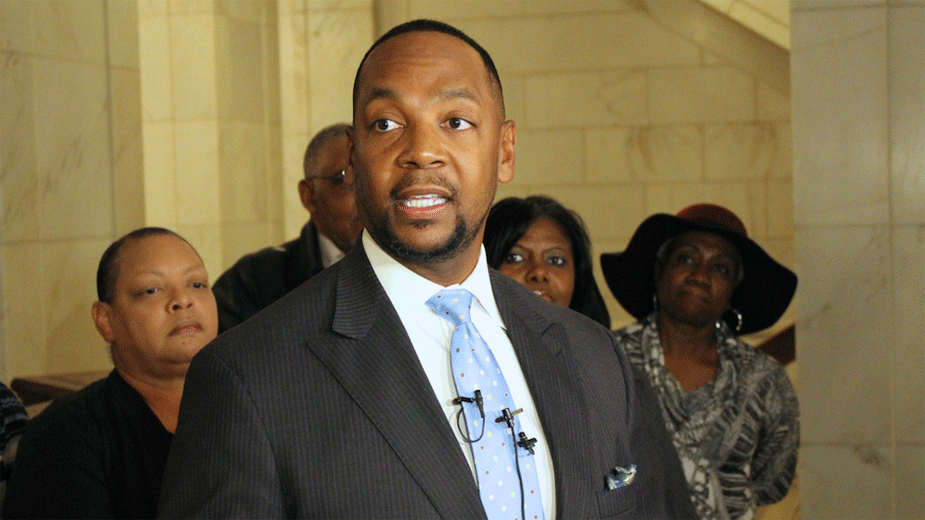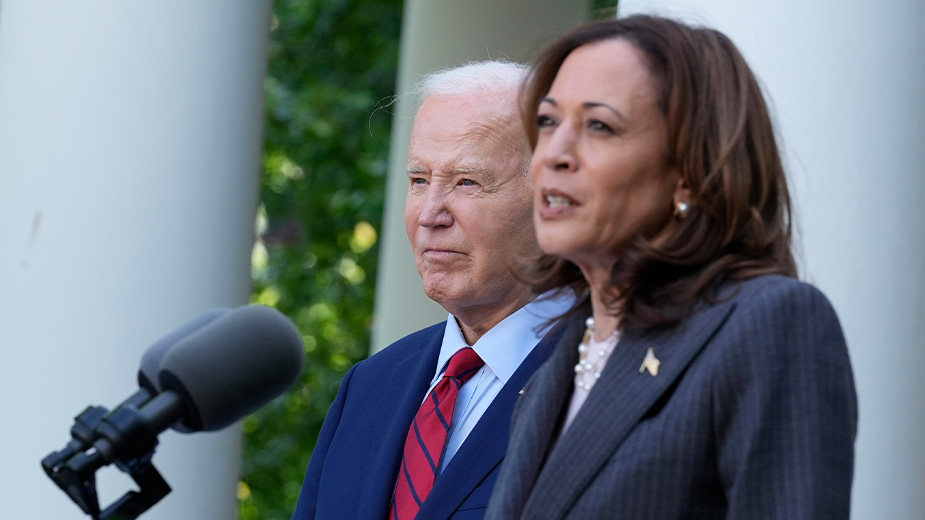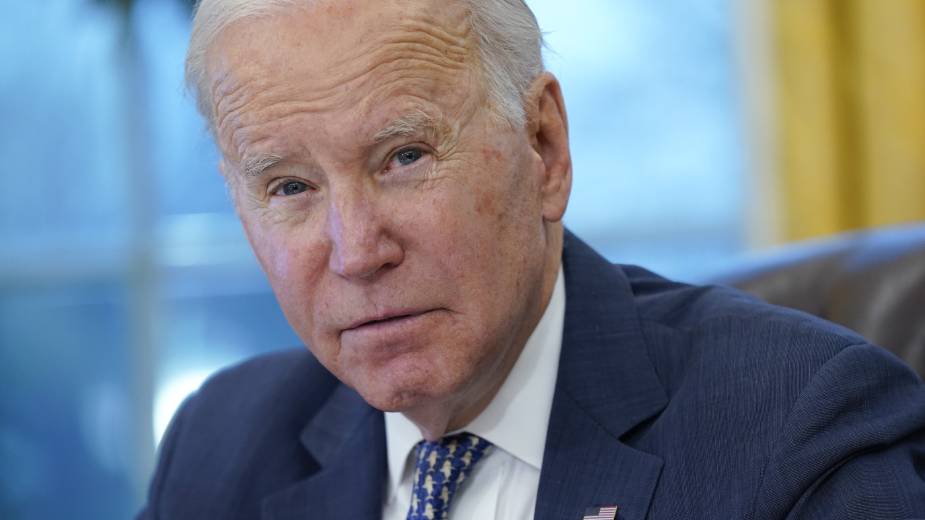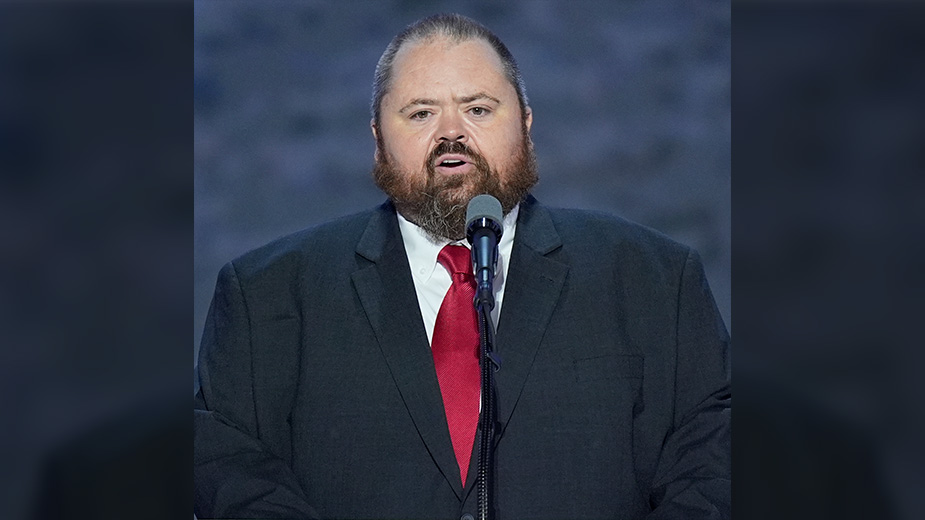McKinney Alleges Fraud, Challenges Result of Mayor’s Race
YOUNGSTOWN, Ohio – Sean McKinney, who lost to Jamael Tito Brown in last month’s election for mayor, is challenging the results of the election.
McKinney, who stepped down as city building and grounds commissioner earlier this year to run as an independent, charged Thursday that the election was tainted and filed a complaint in Mahoning County Common Pleas Court calling for the result to be set aside and a new election held.
“The citizens in Youngstown deserve the right to know that their vote counted and that it was counted correctly. They also deserve a clean and fair election. They didn’t get that on Nov. 7,” McKinney told reporters at a news conference in the Mahoning County Courthouse.
Brown, the winner of the Democratic primary, received 5,328 votes, compared to the 5,127 votes cast for McKinney, according to official election results.
The complaint names the Mahoning County Board of Elections and Brown, who is preparing to take office Jan. 1. It calls for the court to set aside the result of the election based on “election irregularities and other improper activities occurring in various precincts” that directly affected enough votes to render the Nov. 7 results “uncertain.”
Specifically, the complaint states that “a substantial number of votes” on Election Day were cast illegally due to violations of procedures under state law, as well as other “irregularities and activities prohibited by Ohio law.” They include:
- At least three instances of electors – voters – not signing the poll book or signature poll book to verify identity before being permitted to vote.
- At least six instances of election officials not comparing the elector’s signature on the elector’s registration form or a digitized signature list before permitting the voter to vote a regular ballot (as opposed to provisional ballot).
- At least 44 instances of electors being permitted to cast a regular ballot when the electors’ signatures “were clearly not the same” as on the registration form or digitized signature list.
- At least 39 voters having voted twice.
- At least 13 instances of voters shown as having voted whose ballots or stubs are “nowhere to be found.”
- At least two instances of voters ineligible to vote a regular ballot being permitted to do so.
- At least two voters wrongfully denied the right to vote either a regular or provisional ballot.
- At least one instance of a person whose vote was shown to be cast when the voter was not at the voting location.
- Lack of signature by precinct officials in two precincts, calling into question the integrity of the results, affecting at least 274 votes cast, and just one signature by one member of a political party signing the poll book in precinct 5C, calling into question at least 453 votes.
- Only a representative of Brown’s campaign being notified when county elections officials were providing assistance in marking absentee ballots at nursing homes (law requires two election officials from different political parties to be present).
- Several nursing home residents noted as having refused to vote, no signature, uncountable or for other reasons yet listed in the report of the final numbers and abstracts.
McKinney’s campaign also said that despite the requirement for the county elections board to maintain as public records the used, unused, soiled and defaced ballots and stubs from each precinct, as well as records showing the abstract, military and provisional ballots approved and rejected, his campaign found it “unreasonably difficult” to obtain those documents from the board, “which repeatedly provided partial, incomplete and delayed responses” to its requests.
The documents that were produced “show large discrepancies between the votes that should have been recorded based upon the stubs and ballots, and the number of votes actually counted.”
The “irregularities and illegalities affect enough votes to make the true will of the voters in the mayor’s race impossible to ascertain,” according to the complaint, which charges that Brown “is not” Youngstown’s duly elected mayor and calls for his election to be declared and certified by the elections board as invalid. It calls for the result to be set aside and a new election held.
“Many people have come to us and told us their personal story of being denied the right to vote or being offered a provisional ballot but not knowing if their vote counted,” McKinney said at his press conference. “We heard about people in nursing homes being used as political pawns, people who can’t even ask for a glass of water but somehow requested an absentee ballot.
“Public service should be about advocating for the weakest in our society, not taking advantage of them,” he continued. “The voters deserve answers to all of these questions before anyone can be declared the next mayor of Youngstown.”
Volunteers from the McKinney campaign went through every ballot the campaign was given, the candidate said. His campaign also has set up a website, IVotedForMckinney.com, for others to share their stories about what happened in this election.
“There obviously were gaps in terms of the information that we’ve been provided,” attorney Donald C. Brey of the Columbus firm of Taft, Stettinius & Hollister LLP, said. “Our folks have asked for public records, many of which we’ve received and some of which we have not.”
Brey said he has had elections “set aside and reviewed in many ways.”
Brown and Mark Munroe, chairman of the Mahoning County Board of Elections, disputed McKinney’s contentions.
Brown, who is in the process of choosing candidates to fill his administration, said he was “disappointed” to see that McKinney was calling for a new election. “The people have spoken. The voters of Youngstown have spoken,” he said. “The will of the people should be accepted. Any candidate who runs for election should let the will of the people be heard.”
Munroe bluntly characterized as “absurd” the suggestion that the election for mayor was fraudulent and said McKinney was wasting his money on the lawsuit.
“There are extensive checks to ensure that every election is conducted fairly and that the results reflect the will of the voters,” he said.
The board will respond to each of the questions raised and he is confident that the courts will agree the election was fair and the results correct, Munroe continued. “I welcome the chance to have our processes be scrutinized so the public can have confidence in the outcome.”
If a new election is granted, the certificate in the contest for the Nov. 7 election is set aside and would be invalid. Come Jan. I, the office would be filled as if it were a vacancy subject to being filled by a new election. Next in line would be the president of City Council, a position to be assumed in January by Demaine Kitchen.
The new election would play out as a normal one would, as set out in the Ohio Revised Code, with a primary, provisional and absentee ballots, early voting and election day voting, Brey said. “We just want to have one in which the requirements are met,” he said.
Brey said he believes he will be notified about a hearing date today. The statute provides for an initial hearing to be set within 15 to 30 days after the petition for an election contest is filled, and either side can ask to continue. The judge’s decision also is subject to direct appeal to the Oho Supreme Court, he said.
“The purpose of the election complaint is not to make Sean McKinney win. The purpose is to ensure the will of the people is truly reflected in whatever the majority of the voters decide,” Brey said.
Pictured at top: Sean McKinney speaks to reporters Thursday.
Copyright 2024 The Business Journal, Youngstown, Ohio.



